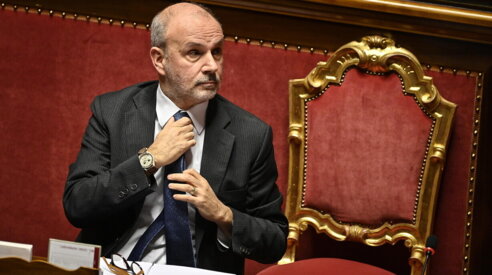Reckless vaccination strategy


ANSA photo
Editorials
Legitimate doubts about the experts appointed by the ministry to the national technical advisory group on vaccinations
On the same topic:
With a decree dated August 5, Health Minister Orazio Schillaci reconstituted the National Technical Advisory Group on Vaccinations (NITAG), which will guide Italy's vaccination strategies for the next three years. This strategic body is expected to operate with scientific rigor and independence, in line with the recommendations of the WHO and the European Centre for Disease Prevention and Control. For this reason, the composition of the new group appears to be quite significant. While it includes authoritative experts in infectious diseases, hygiene, and public health, some appointments raise serious concerns . Among its members are an orthopedist, a retired surgeon, and Eugenio Serravalle, a pediatrician and professor in Pisa known for his critical stance on vaccinations. Serravalle has publicly expressed doubts about the safety of COVID-19 vaccines and questioned the utility of pediatric vaccinations extended to all newborns, even arguing that a "healthy diet" could be a valid alternative.
These ideas are legitimate in the public debate, but they are difficult to reconcile with the role of technical leader of the national vaccination strategy. It is legitimate to ask how coherently those who have questioned their efficacy and safety can contribute to the promotion of vaccination campaigns. Even more inexplicable is the presence of specialists unrelated to the topic, while central figures such as a general practitioner, a pediatrician, and a pharmacist are absent. The choice to include disparate voices risks weakening the authority of the NITAG, generating confusion rather than reassurance . The principle of scientific pluralism cannot justify the inclusion of irrelevant or openly skeptical figures: specific expertise and methodological consistency are required. Public trust in institutions is built on solid evidence and unambiguous messages. The new NITAG will have to demonstrate, in practice, that it is up to this challenge. For now, more than a few doubts remain .
More on these topics:
ilmanifesto




